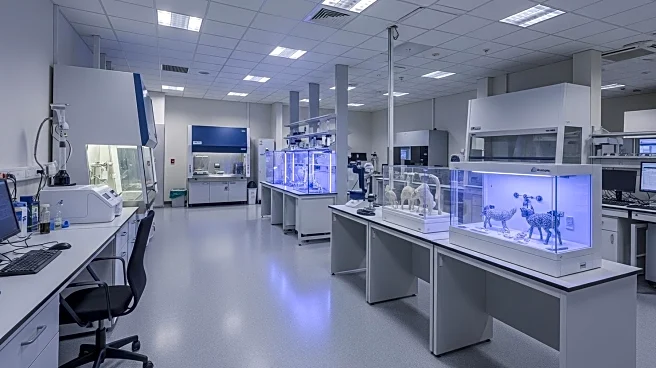What's Happening?
The pharmaceutical and biotech industries are shifting towards non-animal testing models, driven by ethical imperatives, regulatory reforms, and technological advancements. The FDA and EMA are phasing out mandatory animal testing for drugs, endorsing New Approach Methodologies (NAMs) to cut costs and align with global sustainability goals. This transition is expected to accelerate drug development timelines and improve accuracy, with organ-on-a-chip systems replicating human physiology more effectively than animal models. Investors are poised to benefit from this shift, with the market projected to grow significantly.
Why It's Important?
The move towards non-animal testing models represents a significant shift in drug development, offering advantages such as faster timelines, improved accuracy, and ethical alignment. This transition is expected to reduce preclinical expenses by 30% and align with global sustainability goals. Investors focusing on ESG principles are likely to prioritize companies adopting these methodologies, potentially leading to increased funding and innovation in the sector. The FDA and EMA's endorsement of NAMs could streamline approval pathways, benefiting both startups and established players in the biotech and pharma industries.
What's Next?
As the FDA and EMA continue to endorse NAMs, the industry is expected to see increased investment in non-animal testing technologies. Startups pioneering these alternatives are likely to attract significant funding, driving further innovation. Regulatory bodies may continue to expand the scope of NAMs, potentially phasing out animal testing across more drug categories. This shift could lead to a paradigm change in drug development, prioritizing human-relevant science and reducing reliance on outdated practices.









